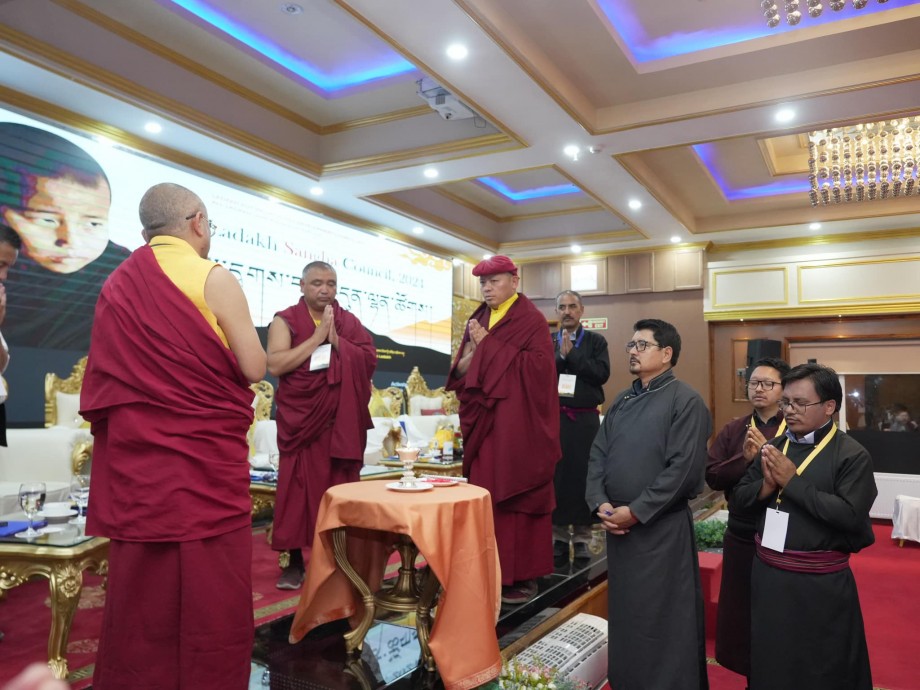Ladakh Sangha Council: Strategies for sustaining buddhist teachings and culture

The First Ladakh Sangha Council 2024 was held at Zen Hotel, Leh Ladakh, on July 12, organized by the Ladakh Autonomous Hill Development Council (LAHDC) in collaboration with the Ladakh Gompa Association.
The event was graced by His Eminence Thuksey Rinpoche, His Eminence Bakula Rangdol Nima Rinpoche, CEC LAHDC Leh Tashi Gyaltson, Executive Councillor (Animal/Sheep) Tashi Namgyal, Executive Councillor (Culture) Stanzin Chospel, Nominated Councillor Ven Konchok Tsepel, Ven Tsering Wangdus, President of the All Ladakh Gompa Association, Vice President LBA Rigzen Dorjey, Tsewang Paljor, Deputy Secretary Culture, and venerable monks.
The council focused on the significant role of monasteries and monks in Ladakh in preserving ancient Buddhist teachings, literature, and culture. Historically, many Rinpoches and renowned Buddhist monks have dedicated their efforts to preserving Ladakh's unique cultural heritage. It is crucial to continue this legacy to protect the language, belief systems, rituals, art, literature, and culture.
Monasteries contribute not only to spiritual fulfillment but also to Ladakh's tourism sector. The display of primitive art and manuscripts in monasteries attracts tourists, eager to learn about Buddhist culture and Ladakh's history. His Eminence Thuksey Rinpoche emphasized the council's vision for the next 15-20 years, focusing on nurturing, protecting, and sustaining the teachings of Buddha rather than on further infrastructure development. He expressed concern over the declining Buddhist population and the waning interest among locals in the true significance of monastic scripts, statues, and teachings.
CEC LAHDC Leh, Tashi Gyaltson, highlighted the contributions of Buddhist monasteries to tourism, referring to them as the Living Heritage. He mentioned the construction of stupas at Umling La, Sindhu, and other locations, symbolizing peace. Gyaltson also discussed initiatives by the administration to provide social security, including health insurance for the poor and for monks.
Tsewang Paljor, Deputy Secretary / Special Officer Culture, noted that Ladakh's rich culture owes much to the guidance and teachings of the gompas. The event was an occasion to express gratitude for the historical contributions of monks and monasteries, emphasizing the continued importance of gompas as centers of worship and learning for future generations.





